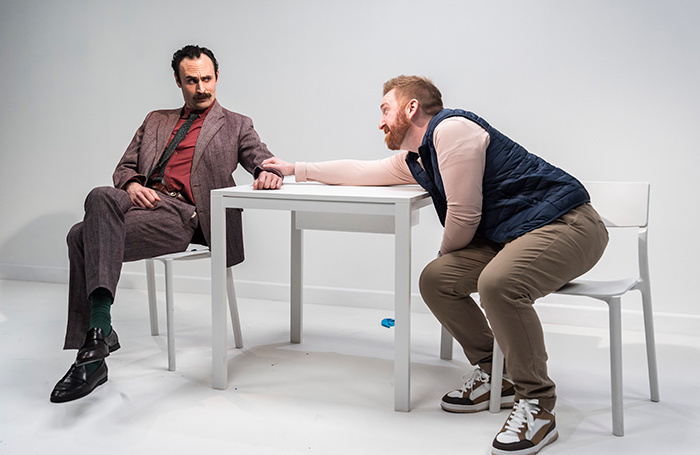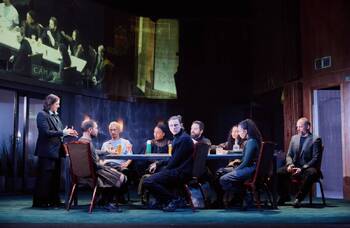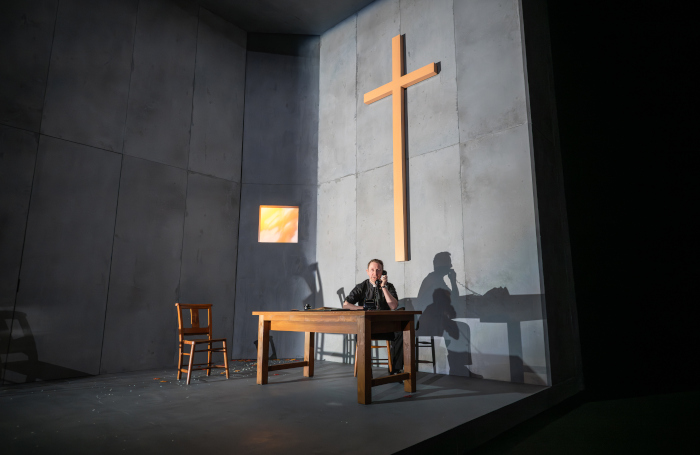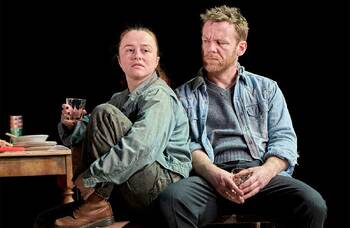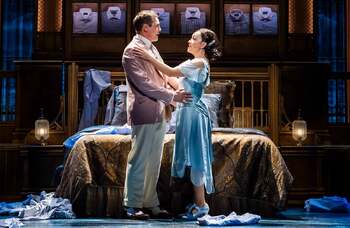Dear Martin review
Messily told story of mental illness and toxic co-dependence from comedy writer Madeleine Brettingham
Not to be confused with Nic Stone’s identically titled 2018 novel of racial injustice, this underwritten comedy from Madeleine Brettingham plays out like a twisted reworking of the story of Cyrano de Bergerac. Here, convicted serial killer Martin coaches unhappily married Dave through his relationship troubles in a series of devious letters and awkward face-to-face encounters.
Though there is plenty of promise in the story’s setup – both of dark humour and of compelling character conflict – Brettingham struggles to pin down either. Martin seethes with frustration as he searches for a way to alleviate the overwhelming boredom of his incarceration by toying with the needy, easily led Dave, but Brettingham’s shallow script only scratches the surface of their tangled, co-dependent relationship. Their stories feel directionless, and the jokes they crack along the way lack the subversive bite that the scenario demands. But while the comedy is leaden, Brettingham does make some interesting points about the deep roots of toxic masculinity and the ways in which callous, self-interested manipulators like Martin can exploit some men’s feelings of entitlement and disempowerment.
Director Wiebke Green gives the production a brisk staging, rattling through scenes at a breakneck pace and cranking up the silliness with some cartoonishly exaggerated performances from the four-strong cast. Ben Simpson’s Dave is less plucky underdog than hapless puppy, always either whining or hopping excitedly from foot to foot. Amelia Donkor works hard in a series of thinly drawn parts, including the grossly incompetent psychiatrist handling Martin’s case and a frequent visitor to the same psychiatric hospital, whose veneer of chirpy friendliness covers a deep, quiet sadness.
Continues...
As the eponymous killer, Alex Mugnaioni plays to a thoroughly familiar archetype of psychopathy. Martin is educated, confident, softly spoken and entirely selfish; his every word and gesture calculated to influence those around him. He deploys charm and cruelty with equal detachment, but remains intently watchful at all times, always observing what effect his actions have had. Mugnaioni takes care to show the raw need that the murderer has for the attention, validation and the petty sense of power that he can wring from Dave’s guileless offer of friendship.
The secure psychiatric unit where Martin spends his days is realised by Kit Hinchcliffe’s austere and sterile set, with floor, walls and furniture all gleaming and uniform white. Lucía Sánchez Roldán’s vivid lighting brings colour and dimension to the stark space, clearly differentiating scenes with shifts from white glare to warm, peach-pink glow. Julian Starr’s sound design is a jumble, sampling everything from Bernard Herrmann’s iconic, jagged strings to melodramatic classical chorales and to Diana Ross’ Ain’t No Mountain High Enough. It’s an odd, disjointed soundtrack to an uneven play, which never quite settles on a tone.
For all the latest reviews from The Stage, sign up to our weekly reviews newsletter here
More Reviews
Recommended for you
More Reviews
Recommended for you
Most Read
Across The Stage this weekYour subscription helps ensure our journalism can continue
Invest in The Stage today with a subscription starting at just £7.99
